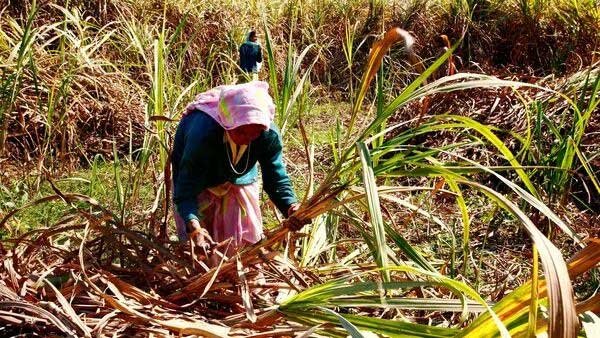Surprisingly, India, a major player in the sugarcane industry, has yet to impose an export duty on molasses. This sugarcane by-product is crucial for ethanol production—a sustainable biofuel. Could this change the game for energy and agriculture in India?
NEW DELHI: With India aspiring to increase its ethanol blend in petrol to 20% by 2025-26, the government is considering a significant policy shift—a proposed 50% export duty on molasses to boost domestic supply. This comes from sources familiar with government deliberations.
Molasses, a sugarcane byproduct essential for ethanol production, currently traverses the global market duty-free from India. But with sugarcane scarcity due to erratic rainfall, the authorities are contemplating export constraints.
The government’s initiative aims to elevate the ethanol content in petrol from the current 12% to the planned 20%. Stakeholders, including sugar industry groups, support the hefty export tariff on molasses to ensure its local availability for meeting the ethanol blend objectives.
India’s status as a leading molasses exporter, accounting for approximately 25% of the international market, underscores the significance of the proposed duty in a global context.
Domestic focus on molasses comes in the wake of restrictions on sugar exports and initial orders to halt using cane juice for ethanol, which were later withdrawn. These measures were in response to a sugar shortage for local consumption that pushed prices to a 14-year peak.
Previously in September, a lower 30% export tax was considered but shelved. “Given the tight sugar-based feedstock for ethanol and molasses’ global price trends, a 50% duty is on the cards,” disclosed a senior official. A conclusion might arrive in January.
Inquiries to the relevant commerce, food, and public distribution departments had not elicited a response at the time of reporting.
Key stakeholders in the sugar industry, including the National Federation of Cooperative Sugar Factories Ltd (NFCSF), West Indian Sugar Mills Association, and South Indian Sugar Mills Association, are rallying for regulatory constraints on molasses exports.
With C-heavy molasses constituting roughly 4.5% of the crushed cane volume, this by-product is essential for ethanol production, contributing about 225 crore litres, NFCSF detailed in a communication to the food ministry. Nevertheless, a considerable portion is shipped overseas, notably to nations such as the Netherlands, Philippines, and the UK, which diminishes the potential ethanol yield by 30 crore litres.
The associations underline the necessity to channel all C-heavy molasses domestically to meet the ambitious 20% ethanol blending goal, suggesting “significant customs duties or… an outright ban.” Being a final derivative in sugar processing, C-heavy molasses lacks the sucrose found in B-heavy molasses or raw sugarcane juice.
As of November 30, India’s ethanol production capabilities stood at approximately 13.8 billion litres—8.75 billion from molasses and 5.05 billion from grain. To accomplish the 20% blending objective, the country needs about 10.16 billion litres of ethanol, plus another 3.5 billion for different industries.
Accordingly, an estimated 17 billion litres of ethanol production capacity has to be established by the fiscal year 2025-26, with the sugar sector contributing nearly half, about 7 billion litres, and the remainder supplied by grain-based sources.
Unfortunately, this year’s subpar monsoon has precipitated a sugar yield deficit, which could impact the allocation of sugar for ethanol conversion.
Sugar production for the current agricultural year, commencing in October, is forecasted to settle between 29-30.5 million tonnes, juxtaposed with a domestic demand of 27.5-28 million tonnes. Post-diversion for ethanol, the 2022-23 season is expected to reflect a production of 32.7-32.8 million tonnes of sugar.
Tarun Sawhney, Vice Chairperson and Managing Director at Triveni Engineering and Industries Ltd—amongst India’s foremost comprehensive sugar enterprises—remarks that the government’s supportive ethanol policies focused on pricing and a assortment of feedstocks, including rice and maize, have helped mitigate supply volatilities and upheld market equilibrium.











